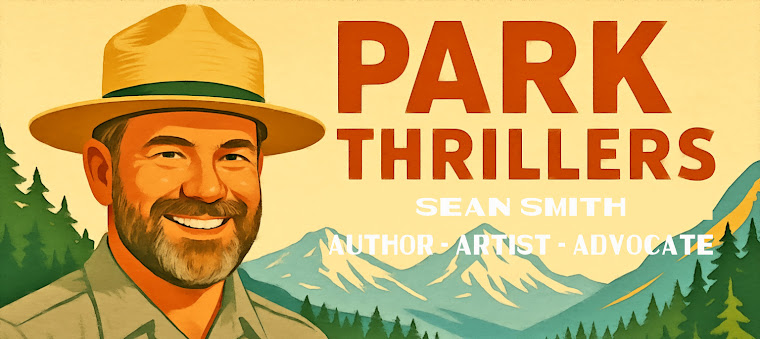First and foremost, thank you.
To every reader who’s cracked open one of my thrillers, to every fan who’s shared a recommendation, written a review, or sent me a note—you’ve made this journey possible. Because of your support, my novels have reached thousands of readers, and I couldn’t be more grateful. Your passion for high-stakes stories set in wild and iconic landscapes fuels my drive to keep writing.
Which brings me to some exciting news…
My latest political and environmental thriller, Friends Like These, is now available!
And that’s not all—Unleashing Colter’s Hell, Lost Cause, and Need to Know have been re-released with bold new branded covers that reflect the adrenaline, mystery, and national park landscapes readers have come to love.
How I Write: Real Parks, Real Fears, Real History
Every thriller I write starts the same: a national park, a historical twist, and one of my deepest fears—extinction events, civil war, or global invasion. I dig into real events that most people forget—or never knew happened—and ask, "What if?"
Our national parks aren’t just beautiful backdrops. They’re layered with forgotten history, buried secrets, and raw power, making them the perfect setting for thrillers that blur the line between fact and fiction.
Unleashing Colter’s Hell
Set in Yellowstone National Park, this novel dives into the terrifying reality of the park’s supervolcano, which is overdue for an eruption. Add a religious fanatic with an atomic bomb, and suddenly, Yellowstone’s seismic rumblings become a countdown. Yes, the threat is real—Yellowstone sees hundreds of earthquakes yearly, and scientists openly acknowledge it’s not a matter of if it will erupt, but when.
Lost Cause
Published before January 6th, this book now feels chillingly prophetic. In it, a shadowy group tries to ignite a second American Civil War, using historical symbols, conspiracy theories, and domestic terror. Sound familiar? From Confederate flags in the Capitol to efforts to overturn democracy, it’s clear: division isn’t just a plot device anymore—it’s a headline.
Need to Know
Inspired by the real 1947 sighting of nine silver discs over Mount Rainier, this thriller asks: What if something did crash? What if it’s still buried on the slopes of that volcano? And what if the government has been hiding it ever since? With recent declassified UFO footage and congressional hearings, the book’s paranoia doesn’t feel so paranoid anymore.
Introducing: Friends Like These
My newest thriller, Friends Like These, takes the action to another level, exploring corruption and betrayal in the management of our national parks. When Ranger Grayson Cole uncovers a deadly conspiracy, he must navigate not just wilderness and fire, but a web of lies that threatens everything he holds dear.
At its core, Friends Like These is about loyalty— to country, cause, and to each other. But in a world of hidden agendas, even the most trusted friends can be enemies in disguise. Look for its release shortly.
Ready to Explore?
Check out the all-new branded covers of my earlier thrillers and experience the tension, history, and wilderness that fans love.
Browse all my books here: https://www.amazon.com/author/parkthrillers
Whether you're a longtime fan or just discovering my work, I invite you to pick up Friends Like These and find out what happens when loyalty is tested, lies are exposed, and the wilderness hides more than secrets.
Thanks for being part of the journey—
Sean D. Smith





